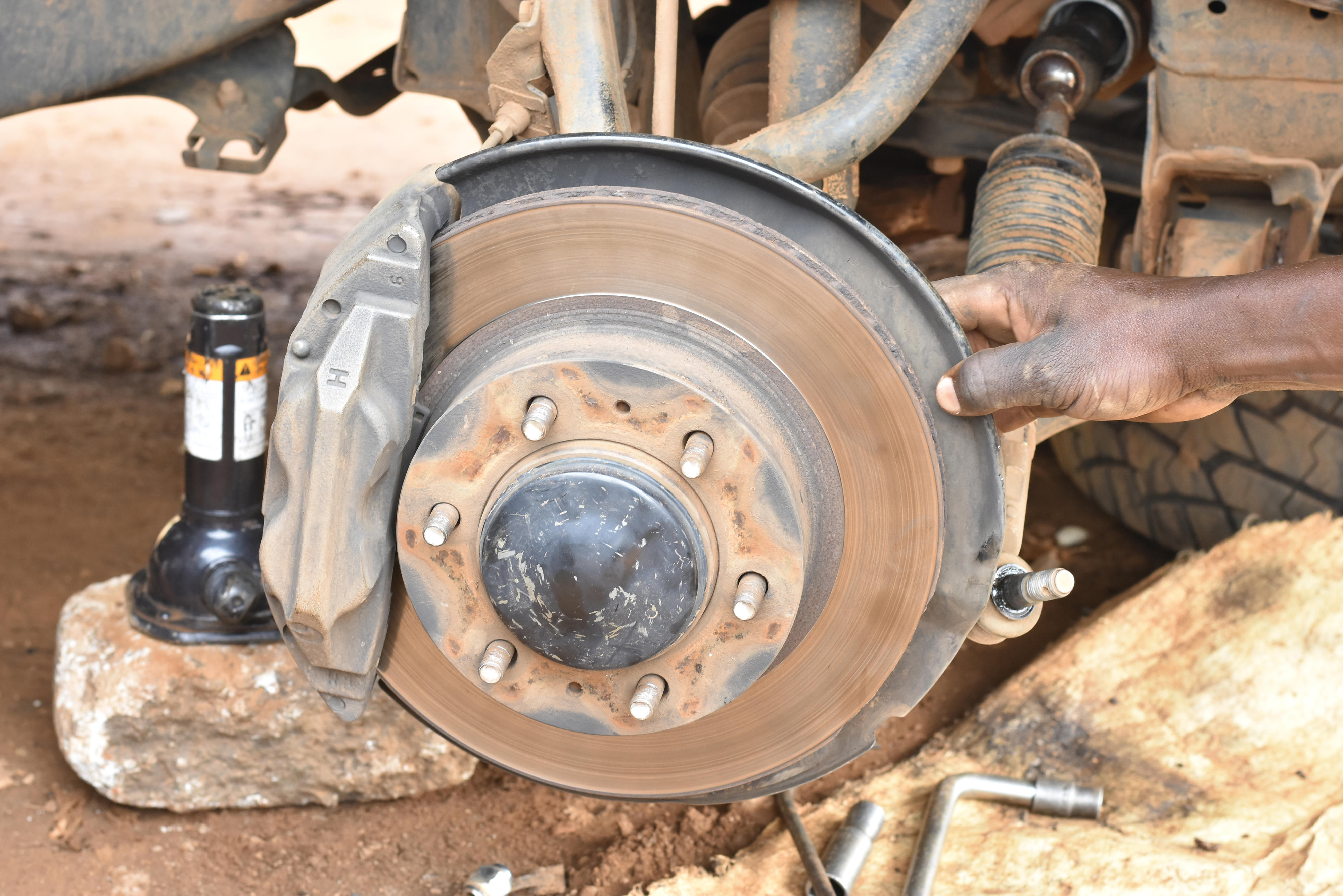Ask the mechanic: Why are my car rims and brakes overheating?

Defective brake components will cause poor brake performance and overheating. PHOTO | PROMISE TWINAMUKYE
My Premio X’s front rims heat up a lot. I recently took the car to a mechanic where new brakes were installed and the calipers fixed. However, this has not changed the situation. Could it be due to the tyre pressure which usually goes down or increases to like 50 (front tyres). Tonny
Hello Tonny, your brake system may be overheating due to defective brake system components or aging brake fluid. This explains the hot rims and increased tyre pressure.
Car brakes slow down or stop your car by clamping brake disc rotors with pads engaged by the caliper pistons. This process relies on friction which causes some heat. Your concern is your front wheels seem to be overheating.
There are telltale signs when your brakes are overheating. Your brake pedal may feel soft as you drive along due to aging brake fluid boiling.
Brakes may also start smoking particularly during hard braking and you can smell the burning brakes.
Loud squealing of brakes will also suggest brake system overheating due to brake fade when the backing metal plate of worn out brake pads engages the disc rotors - metal to metal.
Common causes of brake overheating and ways to resolve or avoid them.
Defective brake components such as jamming caliper guide pins, worn out brake pads and warped brake disc rotors will cause poor brake performance and overheating.
During repair endeavor to replace faulty parts with genuine or good quality new parts in pairs for consistent good performance. Unevenly worn out used brake parts (pads and discs) are also causes of poor performance and overheating.
Incorrect installation of brake system parts. Wrong fitting of parts will lead to jamming which causes overheating.
Find a professional garage to help resolve brake issues.
Aging brake fluid: This is when brake fluid overheats due to accumulation of moisture which lowers the boiling point while newer brake fluid has a higher boiling point.
As brake fluid ages it hygroscopically attracts and builds up moisture content. This moisture causes corrosion, compromises timely hydraulic actuation of the brake pistons as well as reduces the cooling function of brake fluid by lowering its boiling point to that of the moisture (water).
Brake fluid with a lower boiling point cannot be a good heat dissipator (transfer medium) as it overheats sooner than it should. Renew your brake fluid every 40,000kms so that it can effectively perform its role of lubricating, cooling and inhibiting corrosion in the brake system.
Why does my Suzuki have increased soot deposits after fitting a Toyota engine computer?
My computer for Suzuki Vitara engine, electronic fuel injection 16 valve was changed to the one of Toyota 100 i.e. Toyota kikumi. Now the spark plugs are surrounded with black soot and it has high consumption of fuel. What is your advice? Valens Kaliisa
Hello Valens, your Suzuki is not burning fuel optimally because it has the wrong computer.
In the modern electronic fuel injection internal combustion engines the engine management computer (ECM) plays an important role of controlling the ignition system (burning fuel and air mixture) relying on information from different sensors monitoring emission, engine temperature, engine speed and timing of camshafts. As such the ECM is built to work within preset parameters.
When the wrong Toyota ECM is fitted to your car it cannot communicate effectively with the Suzuki engine management sensors so it will just deliver unregulated spark and fuel.
This leads to incomplete combustion of fuel air mixture which leaves unburnt fuel or soot deposits in the combustion chamber and on your spark plugs. You may need to find the correct engine computer to resolve this.
I drive a Toyota Ipsum (1999) and do regular service as required. Recently, I notice that it consumes a lot of fuel. I used to use almost half a tank from Kampala to Kasese but of recent I use nearly the whole tank for such a trip. The car does not smoke at all and I honestly think the fuel burning is complete. I need your expert advice on improving the fuel economy of the car. Allan
Hello Allan, if your Ipsum has been using half a tank (30 litres) of petrol to cover a distance of 397 kms from Kampala to Kasese, then your fuel consumption was about 12km/litre on the highway.
If you are now using twice as much fuel (60L) then your fuel economy has reduced to 6 km/litre.
Besides poor engine compression or poor service condition, there are other factors that can increase fuel consumption or reduce fuel economy. Bad or dirty oxygen sensors cause the engine management system to deliver large amounts of unregulated fuel which causes a rich mixture of fuel.
Damaged fuel injectors can deliver unregulated amounts of fuel. A faulty coolant temperature sensor and engine thermostat can cause the engine to run at higher revolutions assuming that the engine is cold and needs cold start warming.
A computer diagnosis can help you identify these problems. There are driving style measures you can implement to improve fuel economy.
Sensible driving without aggressive braking and jack rabbit take offs will improve fuel economy.
Overloading, unnecessary use of air conditioning as well as driving on worn out tyres all contribute to loss of fuel economy.




